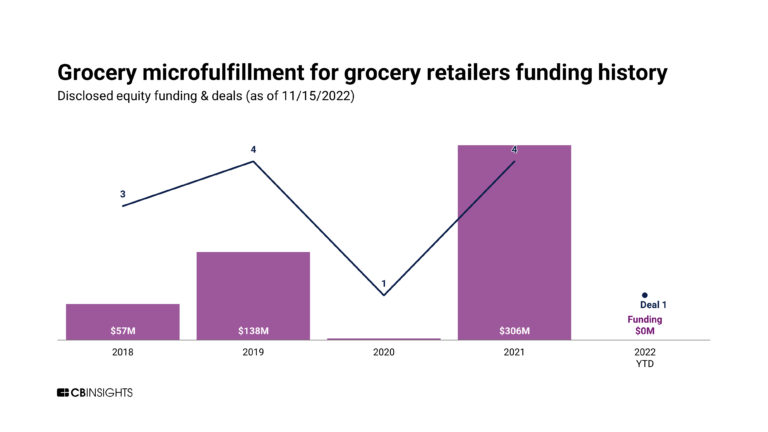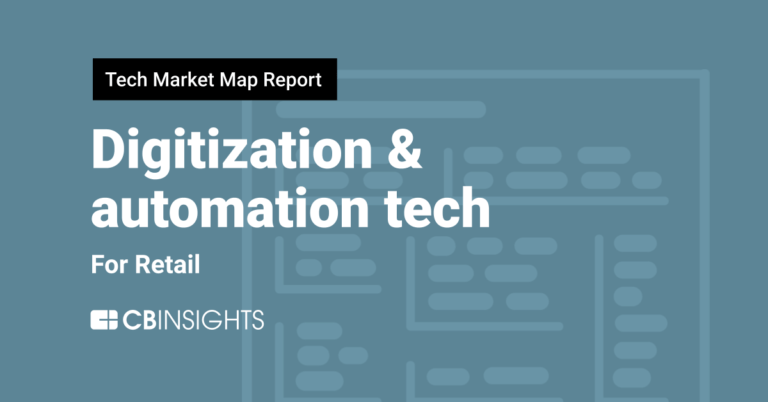
Fabric
Founded Year
2015Stage
Series C | AliveTotal Raised
$336.01MValuation
$0000Last Raised
$200M | 3 yrs agoMosaic Score The Mosaic Score is an algorithm that measures the overall financial health and market potential of private companies.
-61 points in the past 30 days
About Fabric
Fabric operates as a retail technology company focusing on customer experiences from online shopping to delivery. The company offers intelligent robotic fulfillment and local last-mile operations, essentially redefining supply chain processes. Its solutions include back-of-store automation, automated micro-fulfillment and, enterprise-scale operations. It primarily serves the ecommerce industry. It was formerly known as CommonSense Robotics. It was founded in 2015 and is based in Tel Aviv, Israel.
Loading...
Fabric's Product Videos
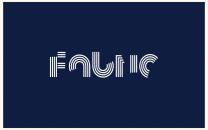
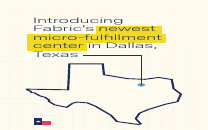
ESPs containing Fabric
The ESP matrix leverages data and analyst insight to identify and rank leading companies in a given technology landscape.
The automated storage & retrieval systems (ASRS) market helps businesses optimize their supply chain operations. These systems use automated machines — including cranes, shuttles, conveyors, and robots — to maximize warehouse space and increase fulfillment efficiency. With the rise of e-commerce and changing consumer expectations, businesses are increasingly turning to these systems to cut costs a…
Fabric named as Challenger among 15 other companies, including AutoStore, Locus Robotics, and Symbotic.
Fabric's Products & Differentiators
The Fabric Smart Cube
Our product enables brands and retailers to achieve profitable eCommerce fulfillment with high-throughput and high-density automation. Our cube-based fulfillment solution includes both hardware and software components that enable a wide range of operational activities to improve fulfillment efficiency. Our system is broken down into five parts: lift robots, ground robots, touchpoints, robotic picking arms, and the proprietary software that powers each of our hardware components. Our 3D topology is highly flexible, allowing us to fit into nearly any footprint, no matter the size, shape, or structural design constraints. Because of the flexible nature of our product, we’re able to serve a wide variety of use cases including: micro-fulfillment, back of store fulfillment, and B2B replenishment, and more.
Loading...
Research containing Fabric
Get data-driven expert analysis from the CB Insights Intelligence Unit.
CB Insights Intelligence Analysts have mentioned Fabric in 10 CB Insights research briefs, most recently on Sep 28, 2023.

Sep 28, 2023
The automation in advanced manufacturing market map
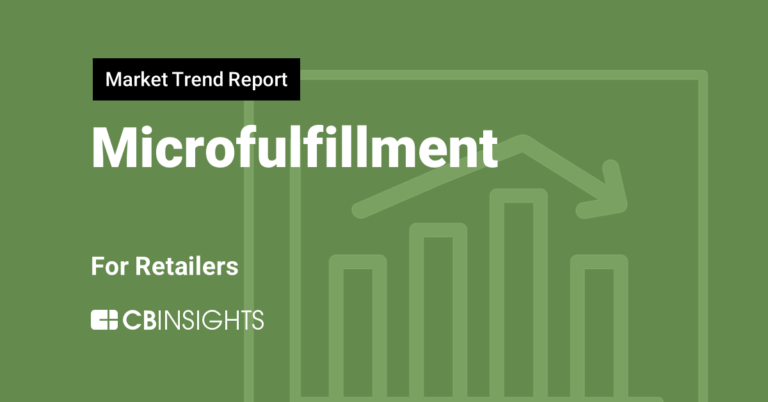
Feb 21, 2023
Market Trend Report: Microfulfillment for retailers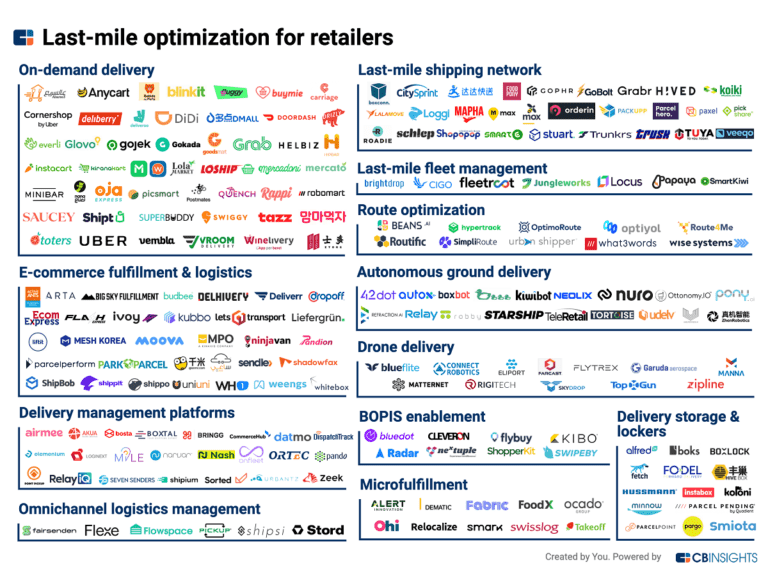
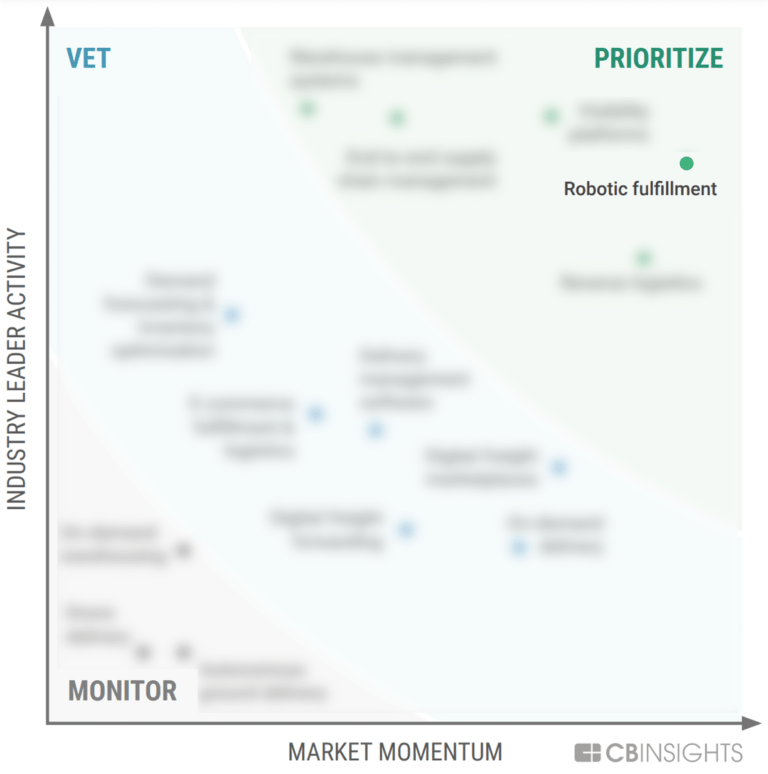
Apr 22, 2022 report
Why retailers are prioritizing robotic fulfillmentExpert Collections containing Fabric
Expert Collections are analyst-curated lists that highlight the companies you need to know in the most important technology spaces.
Fabric is included in 9 Expert Collections, including Store tech (In-store retail tech).
Store tech (In-store retail tech)
1,871 items
Companies that make tech solutions to enable brick-and-mortar retail store operations.
Supply Chain & Logistics Tech
5,625 items
Companies offering technology-driven solutions that serve the supply chain & logistics space (e.g. shipping, inventory mgmt, last mile, trucking).
Unicorns- Billion Dollar Startups
1,244 items
Robotics
2,005 items
This collection includes startups developing autonomous ground robots, unmanned aerial vehicles, robotic arms, and underwater drones, among other robotic systems. This collection also includes companies developing operating systems and vision modules for robots.
Grocery Retail Tech
831 items
Startups providing B2B solutions to grocery businesses to improve their store and omni-channel performance. Includes customer analytics platforms, in-store robots, predictive inventory management systems, online enablement for grocers and consumables retailers, and more.
Artificial Intelligence
14,653 items
Companies developing artificial intelligence solutions, including cross-industry applications, industry-specific products, and AI infrastructure solutions.
Fabric Patents
Fabric has filed 1 patent.

Application Date | Grant Date | Title | Related Topics | Status |
|---|---|---|---|---|
6/8/2016 | 11/12/2019 | Arcade games, Actuators, Gears, Antennas (radio), Control theorists | Grant |
Application Date | 6/8/2016 |
|---|---|
Grant Date | 11/12/2019 |
Title | |
Related Topics | Arcade games, Actuators, Gears, Antennas (radio), Control theorists |
Status | Grant |
Latest Fabric News
May 13, 2021
Health and beauty retailer asks startup Fabric to set up an additional robotized ‘micro-fulfillment center’ in central Israel, increasing existing partnership An illustration of Fabric's, formerly CommonSense Robotics, micro-fulfillment centers (Courtesy Israel’s largest health and beauty retailer, Super-Pharm, is expanding its collaboration with Israeli startup Fabric, formerly known as CommonSense Robotics, to use small robotized facilities in city centers to help the retailer meet the growing online demand for its products. The two companies set up a partnership two years ago, in which Fabric used robotic facilities in the Tel Aviv metro area to process online orders for same-day delivery by Super-Pharm. Now, with the expansion of that collaboration, Fabric will more than triple the number of orders it fulfills for Super-Pharm by building and operating a second so-called “micro-fulfillment center” that will handle thousands of orders a day for the retailer, for nationwide same-day and next-day delivery services on demand. The new site, also located in central Israel, will work in tandem with Super-Pharm’s existing Fabric-operated micro-fulfillment center in the Tel Aviv metro area. At the end of 2018, Fabric launched its “smallest automated e-commerce facility” serving the metropolitan area of Tel Aviv and delivering groceries to customers. The micro-fulfillment centers it sets up are small in size and almost completely robotized spaces located in metropolitan areas. These facilities, which occupy a space of just 6,000 square feet, are crowded with hundreds of robots, many in the shape of supermarket trolleys on wheels, moving across the facilities and processing the orders. An illustration of Fabric’s, formerly CommonSense Robotics, micro-fulfillment centers (Courtesy Retailers drop off their products at the facilities every day. These products are then unpacked and scanned by staffers, and put into blue boxes. When an order arrives, robots identify the products via an inventory management system. Software tells the robot to collect the items, pull them from the shelves and bring them to the human staffer who assembles the order and packs it for delivery. The idea is to set up multiple such facilities in cities in order to allow for faster delivery times. Robotic facilities in use today are generally the size of four to 20 football fields; thus, such warehouses cannot be built in city centers and are set up instead on the city’s outskirts, resulting in slow and costly last-mile deliveries, Fabric says. Super-Pharm said it was able to increase the number of orders being filled out by its Tel Aviv-based micro-fulfillment center by up to 250% throughout the coronavirus pandemic, when online demand spiked due to lockdowns. This was achieved thanks to Fabric’s modular design, which enabled the company to add an extra station at the fulfillment center in a matter of hours, without the need for further construction or site closure time. “To provide the best possible customer experience, Super-Pharm needs to have a complex 360-degree logistics solution for picking and delivery,” said Yossi Cohen, VP Organization & Information Systems at the firm. “The partnership with Fabric puts us at the forefront of innovation and enables us to pick orders quickly and efficiently… We are expecting that the new site will contribute even more to improve the service and efficiency of our online activity, and it’s a partnership with the potential to continue growing and expanding over time.” Super-Pharm, with annual sales of $1.2 billion, has 260 stores in Israel and 70 across Poland. Founded in 2015, Fabric has raised $138 million to date and is backed by Aleph, Corner Ventures, Canada Pension Plan Investment Board, Evolv (Kraft Heinz), Innovation Endeavors, La Maison, Playground Ventures, and Temasek. With offices in New York City, Atlanta and Tel Aviv, Fabric has a team of 200 employees and 20 sites under development, including four already operational micro-fulfillment centers, the statement said. I'm proud to work at The Times of Israel I’ll tell you the truth: Life here in Israel isn’t always easy. But it's full of beauty and meaning. I'm proud to work at The Times of Israel alongside colleagues who pour their hearts into their work day in, day out, to capture the complexity of this extraordinary place. I believe our reporting sets an important tone of honesty and decency that's essential to understand what's really happening in Israel. It takes a lot of time, commitment and hard work from our team to get this right. Your support, through membership in The Times of Israel Community, enables us to continue our work. Would you join our Community today? Thank you, Sarah Tuttle Singer, New Media Editor
Fabric Frequently Asked Questions (FAQ)
When was Fabric founded?
Fabric was founded in 2015.
Where is Fabric's headquarters?
Fabric's headquarters is located at Hamasger 9 Street, Tel Aviv.
What is Fabric's latest funding round?
Fabric's latest funding round is Series C.
How much did Fabric raise?
Fabric raised a total of $336.01M.
Who are the investors of Fabric?
Investors of Fabric include CPP Investments, Temasek, Union Tech Ventures, Princeville Capital, Harel Insurance Investments & Financial Services and 14 more.
Who are Fabric's competitors?
Competitors of Fabric include TakeOff, Noyes Technologies, GreyOrange, Opex Corporation, Magazino and 7 more.
What products does Fabric offer?
Fabric's products include The Fabric Smart Cube .
Who are Fabric's customers?
Customers of Fabric include Superpharm.
Loading...
Compare Fabric to Competitors

Scallog is a company that specializes in logistics robotics within the technology and logistics industries. The company offers advanced software and hardware technologies that optimize order preparation for e-commerce and industrial specialists, with a focus on automating warehouses. The main products include mobile robots that can lift and transport storage shelves to different picking stations, and software solutions that allow real-time tracking and organization of inventory. Scallog primarily serves the e-commerce, retail, and industrial sectors. It was founded in 2013 and is based in Nanterre, France.

Oxipital AI specializes in visual artificial intelligence solutions within the manufacturing sector. The company offers visual AI inspection systems and vision-guided pick-and-place robotic systems. Oxipital AI primarily serves industries such as food processing, agriculture, and consumer packaged goods. It was founded in 2024 and is based in Bedford, Massachusetts.

Osaro specializes in robotics and automation, specifically within the warehouse and logistics industry. The company offers robotic solutions for warehouse automation, including piece-picking robots that can perform tasks such as bagging, kitting, depalletizing, and induction, which were previously done only by humans. These solutions primarily cater to the e-commerce industry. It was founded in 2015 and is based in Sacramento, California.

Locus Robotics specializes in AI-driven warehouse automation solutions within the robotics industry. The company provides autonomous mobile robots that work collaboratively with humans to enhance productivity and operational efficiency in warehouses. Locus Robotics primarily serves sectors such as third-party logistics, retail and eCommerce, healthcare, and industrial sectors. It was founded in 2014 and is based in Wilmington, Massachusetts.

inVia Robotics specializes in warehouse automation solutions. The company offers artificial intelligence (AI) powered software and robotic systems designed to orchestrate tasks and improve productivity in warehouse operations. inVia Robotics solutions cater to e-commerce distribution centers and supply chains seeking to enhance efficiency and accuracy. It was founded in 2015 and is based in Westlake Village, California.

Onward Robotics coordinates humans and robots as a cohesive system for intralogistics fulfillment. The company combines proprietary software with mobile robots to increase operational efficiency and eliminate downtime in warehousing, distribution, and fulfillment centers. The Pyxis technology integrates with company's WMS to prioritize orders, direct and assign tasks, and communicate directly with human workers for continuous and accurate workflow. The company serves industries that include eCommerce, Third Part Logistics, Industrial Warehousing, and Medical supply chains. Onward Robotics was formerly known as IAM Robotics. It was founded in 2012 and is based in Pittsburgh, Pennsylvania.
Loading...
